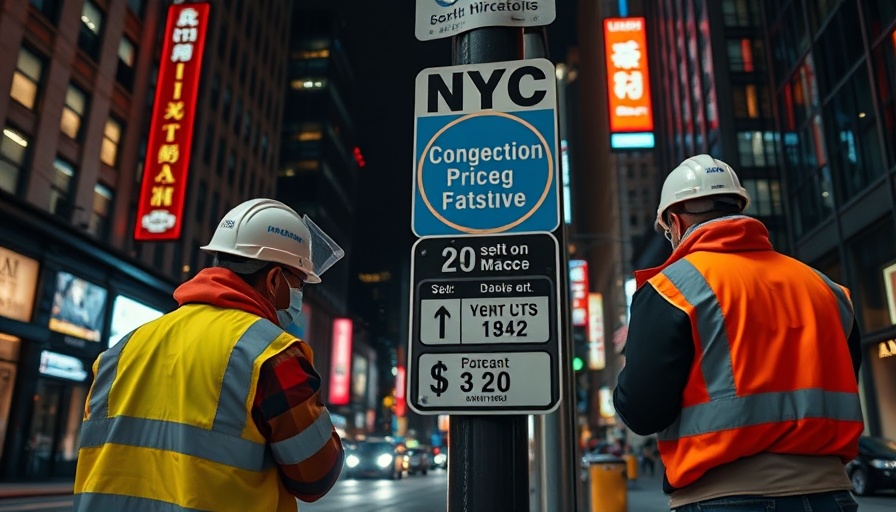
Setting the Stage for Congestion Pricing
The Metropolitan Transportation Authority (MTA) is taking a significant stand against the U.S. Department of Transportation (USDOT) with its recent lawsuit. This legal action comes in direct response to political maneuvers by the Trump Administration aimed at terminating New York City's congestion pricing program, which was designed to alleviate traffic woes in the central business district (CBD). Following a successful launch on January 5, 2025, the congestion pricing program is touted as a groundbreaking initiative, expected not only to reduce traffic congestion but also to increase funding for the MTA’s capital needs.
The Benefits of Congestion Pricing
Initial outcomes from the program have demonstrated substantial benefits like reduced travel times—a remarkable 17% faster crossing at the Lincoln Tunnel and a whopping 48% faster at the Holland Tunnel compared to January 2024 figures. Additionally, subway ridership has surged, indicating a pivotal shift in commuter behavior as many choose mass transit over personal vehicles, leading to better air quality and reduced emissions in an already hard-hit urban environment.
Political Battles Ahead
Despite these promising results, the Trump Administration’s frame of reference highlights a different perspective—political interests increasingly threaten to undermine the program’s successes. The Administration contends that the termination is warranted due to concerns over user equity and revenue generation, framing the legal battles as a larger conflict over federal and state authority in infrastructure management.
Legal Precedents and Future Impacts
This case underscores the essential balance between federal oversight and state-led initiatives, as seen in many regions that benefit from similar congestion pricing models. Given that other cities, like London, have successfully implemented such schemes, there are implications that stretch beyond New York, potentially setting precedents for upcoming infrastructure policies nationally.
A Complex Web of Opinions
It's important to acknowledge the varying opinions surrounding this program. Supporters, including numerous business leaders from the Greater New York Chamber of Commerce, believe the initiative is vital for economic growth and urban mobility. On the other side of the argument, opponents echo concerns regarding its impact on low-income drivers and the potential for creating further disparities in access. As legal proceedings unfold, the stakes increase—determining not just the fate of NYC's congestion pricing, but also setting the groundwork for future transportation policies across the U.S.
 Add Row
Add Row  Add
Add 




Write A Comment